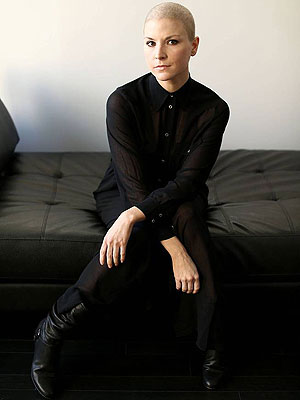AMMAN (Reuters) - The revolt against President Bashar al-Assad first flared in Deraa, but the southern border city now epitomizes the bloody stalemate gripping Syria after 22 months of violence and 60,000 dead.
Jordan next door has little sympathy with Assad, but is wary of spillover from the upheaval in its bigger neighbor. It has tightened control of its 370-km (230-mile) border with Syria, partly to stop Islamist fighters or weapons from crossing.
That makes things tough for Assad's enemies in the Hawran plain, traditionally one of Syria's most heavily militarized regions, where the army has long been deployed to defend the southern approaches to Damascus from any Israeli threat.
The mostly Sunni Muslim rebels, loosely grouped in tribal and local "brigades", are united by a hatred of Assad and range from secular-minded fighters to al Qaeda-aligned Islamists.
"Nothing comes from Jordan," complained Moaz al-Zubi, an officer in the rebel Free Syrian Army, contacted via Skype from the Jordanian capital Amman. "If every village had weapons, we would not be afraid, but the lack of them is sapping morale."
Insurgents in Syria say weapons occasionally do seep through from Jordan but that they rely more on arsenals they seize from Assad's troops and arms that reach them from distant Turkey.
This month a Syrian pro-government television channel showed footage of what it said was an intercepted shipment of anti-tank weapons in Deraa, without specifying where it had come from.
Assad's troops man dozens of checkpoints in Deraa, a Sunni city that was home to 180,000 people before the uprising there in March 2011. They have imposed a stranglehold which insurgents rarely penetrate, apart from sporadic suicide bombings by Islamist militants, say residents and dissidents.
Rebel activity is minimal west of Deraa, where military bases proliferate near the Israeli-occupied Golan Heights.
Insurgents have captured some towns and villages in a 25-km (17-mile) wedge of territory east of Deraa, but intensifying army shelling and air strikes have reduced many of these to ruin, forcing their residents to join a rapidly expanding refugee exodus to Jordan, which now hosts 320,000 Syrians.
However, despite more than a month of fighting, Assad's forces have failed to winkle rebels out of strongholds in the rugged volcanic terrain that stretches from Busra al-Harir, 37 km (23 miles) northeast of Deraa, to the outskirts of Damascus.
Further east lies Sweida, home to minority Druze who have mostly sat out the Sunni-led revolt against security forces dominated by Assad's minority, Shi'ite-rooted Alawite sect.
"KEY TO DAMASCUS"
As long as Assad's forces control southwestern Syria, with its fertile, rain-fed Hawran plain, his foes will find it hard to make a concerted assault on Damascus, the capital and seat of his power, from suburbs where they already have footholds.
"If this area is liberated, the supply routes from the south to Damascus would be cut," said Abu Hamza, a commander in the rebel Ababeel Hawran Brigade. "Deraa is the key to the capital."
Fighters in the north, where Turkey provides a rear base and at least some supply lines, have fared somewhat better than their counterparts in the south, grabbing control of swathes of territory and seizing half of Aleppo, Syria's biggest city.
They have also captured some towns in the east, across the border from Iraq's Sunni heartland of Anbar province, and in central Syria near the mostly Sunni cities of Homs and Hama.
But even where they gain ground, Assad's mostly Russian-supplied army and air force can still pound rebels from afar, prompting a Saudi prince to call for outsiders to "level the playing field" by providing anti-tank and anti-aircraft weapons.
"What is needed are sophisticated, high-level weapons that can bring down planes, can take out tanks at a distance," Prince Turki al-Faisal, a former intelligence chief and brother of the Saudi foreign minister, said last week at a meeting in Davos.
Saudi Arabia and its fellow Gulf state Qatar have long backed Assad's opponents and advocate arming them, but for now the rebels are still far outgunned by the Syrian military.
"They are not heavily armed, properly trained or equipped," said Ali Shukri, a retired Jordanian general, who argued also that rebels would need extensive training to use Western anti-tank or anti-aircraft weapons effectively even if they had them.
He said two powerful armored divisions were among Syrian forces in the south, where the rebels are "not that strong".
It is easier for insurgents elsewhere in Syria to get support via Turkey or Lebanon than in the south where the only borders are with Israel and Jordan, Shukri said.
Jordan, which has urged Assad to go, but seeks a political solution to the crisis, is unlikely to ramp up support for the rebels, even if its cautious policy risks irritating Saudi Arabia and Qatar, financial donors to the cash-strapped kingdom.
ISLAMIST STRENGTH
"I'm confident the opposition would like to be sourcing arms regularly from the Jordanian border, not least because I guess it would be easier for the Saudis to get stuff up there on the scale you'd be talking about," said a Western diplomat in Amman.
A scarcity of arms and ammunition is the main complaint of the armed opposition, a disparate array of local factions in which Islamist militants, especially the al Qaeda-endorsed Nusra Front, have come to play an increasing role in recent months.
The Nusra Front, better armed than many groups, emerged months after the anti-Assad revolt began in Deraa with peaceful protests that drew a violent response from the security forces.
It has flourished as the conflict has turned ever more bitterly sectarian, pitting majority Sunnis against Alawites.
Since October, the Front, deemed a terrorist group by the United States, has carried out at least three high-profile suicide bombings in Deraa, attacking the officers' club, the governor's residence and an army checkpoint in the city centre.
Such exploits have won prestige for the Islamist group, which has gained a reputation for military prowess, piety and respect for local communities, in contrast to some other rebel outfits tainted by looting and other unpopular behavior.
"So far no misdeeds have come from the Nusra Front to make us fear them," said Daya al-Deen al-Hawrani, a fighter from the rebel al-Omari Brigade. "Their goal and our goal is one."
Abu Ibrahim, a non-Islamist rebel commander operating near Deraa, said the Nusra Front fought better and behaved better than units active under the banner of the Free Syrian Army.
"Their influence has grown," he acknowledged, describing them as dedicated and disciplined. Nor were their fighters imposing their austere Islamic ideology on others, at least for now. "I sit with them and smoke and they don't mind," he said.
The Nusra Front may be trying to avoid the mistakes made by a kindred group, Al Qaeda in Iraq, which fought U.S. troops and the rise of Shi'ite factions empowered by the 2003 invasion.
The Iraqi group's suicide attacks on civilians, hostage beheadings and attempts to enforce a harsh version of Islamic law eventually alienated fellow Sunni tribesmen who switched sides and joined U.S. forces in combating the militants.
Despite the Nusra Front's growing prominence and its occasional spectacular suicide bombings in Deraa, there are few signs that its fighters or other rebels are on the verge of dislodging the Syrian military from its southern bastions.
Abu Hamza, the commander in the Ababeel Hawran Brigade, was among many rebels and opposition figures to lament the toughness of the task facing Assad's enemies in the south: "What is killing us is that all of Hawran is a military area," he said.
"And every village has five army compounds around it."
(Writing by Alistair Lyon; Editing by Alastair Macdonald)












